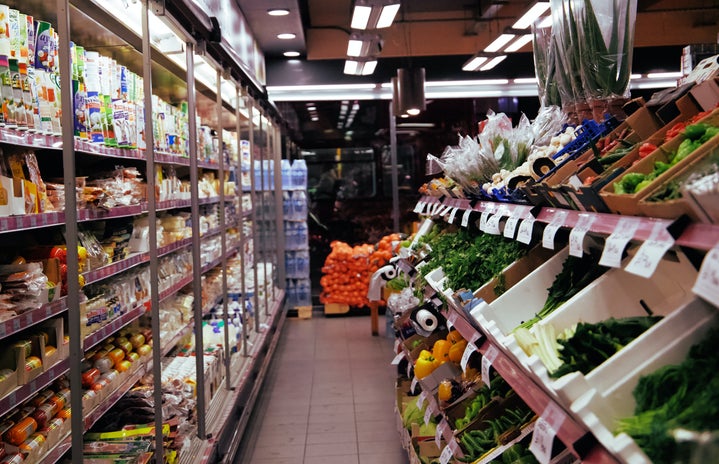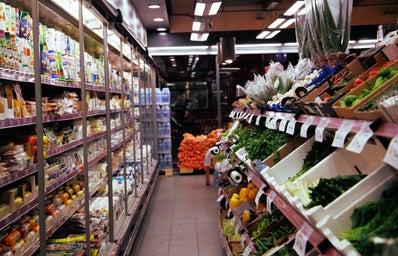Turning to a vegetarian, vegan or plant-based diet has become increasingly popular over the last 3 years, more so in modern countries, such as the UK, Denmark, USA. People will turn to these diets for a range of reasons, including health, animal rights, protecting the environment, cultural reasons or simply just taste preferences. However, this isn’t a universal increase in these diets, as some countries have decreasing rates of vegetarianism, mainly due to their culture involving meat, for example Spain and Brazil both encountered a decrease in vegetarianism of over 2% between 2021-2022. What about veganism? 2019 saw a major jump to an astonishing 600,000 Brits following a vegan lifestyle, which is 1.16% of the population!
Who is driving the change?
WOMEN! – A study found that men are more likely to consume a high meat diet compared to women. Plant-based diets are definitely the future and the girls can see it clearly -GIRL POWER! But why are we changing our diets?
Mintel’s study of over 1,000 Brits, showed that non-meat eater participants were veggie/vegan due to animal rights (54%), environment (32%), health (31%), other reasons included taste, weight management and concerns over antibiotics.
It’s clear that reducing our consumptions of animal products promotes animal welfare, and it’s now widely known that reducing our consumption of red meats will reduce our cholesterol levels, as stated on the NHS website. But why should we go veggie/vegan for our planet?
How is being a meat-eater harming our planet?
- deforestation
-
More animals raised for meat production means more land needed for their lives and their food to be produced, resulting in forest land being cleared. Cattle ranching causes 80% of the deforestation in the Amazon rainforests, which alone releases 340 million tons of carbon to the atmosphere every year.
- biodiversity loss
-
During the clearance of the wild land for these animals and their feed, a variety of plant and animal species are killed or disrupted with nowhere to go. Meat consumption causes a 60% biodiversity loss, which affects the regulation of our ecosystems and promotes climate change.
- soil degredation
-
Carbon losses due to excessive fertiliser and other chemicals, ploughing, clearing forests and peatlands cause excessive amounts of CO2 to be released. Soils are so important for our ecosystems, with their ability to store 4 times more carbon than other plant life, so we need to conserve our soils to secure food production for the future.
- water usage
-
The animal agriculture industry uses an immense amount of water, from bringing the animals up to the slaughter process. A study found that to produce 1kg of wheat, between 500-4,000 litres of water is needed, depending on climate, growing season, agricultural processes etc, while it takes 5,000-20,000 litres of water to produce 1kg of meat, with beef and sheep meat using the highest volumes of water. Crop products generally have a lower water carbon footprint than animal products, but what about protein intake, which is necessary for our diet? The Water Footprint Network stated that per gram of protein for milk, eggs and chicken meat, 1.5 times more water is needed compared to pulses, and 6 times more water is needed for beef.
- Greenhouse Gas Emissions
-
Research states that 57% of global greenhouse gas emissions of food production is from animal-based foods. Farmland management and land-use changes also caused high emissions, with beef being the largest contributor (25%) and rice being the largest contributor from the plant-based foods (12%).
How can being vegetarian/vegan help our planet?
Turning to a more plant-based diet can help in many ways including freeing up more land, by not having to produce feed for the animals, and use the land more effectively, providing food security, and allowing the accessibility for crop rotations to repair the soils, preventing further soil degradation. Crop lands would encourage more biodiversity than animal agriculture for both wildlife and soil diversity, and ensuring there is crop diversity will promote this. Massive amounts of water will be saved by following a more plant-based diet, diverting less water from our rivers etc, keeping our environment healthy. Lastly, following a vegetarian diet produces significantly less greenhouse gas emissions than a meat diet, and being vegan produces even less pollution.
Benefits of vegan/veggie diet:
On top of massively reducing your own carbon footprint, helping to mitigate climate change individually, there are also other benefits which can improve your lifestyle, including your health, conscience of knowing you’re not supporting animal cruelty in this industry, having less microplastics in your body from the ingested waste of some animals – mainly from fish from the ocean.
It’s understandable that changing your diet that has been mostly the same for your life is very difficult, and for others it is not possible due to health requirements. For people who don’t know a lot about cooking for a vegetarian/vegan diet and what is needed to maintain the nutrients needed, it can be very tough, especially with not nourishing their bodies with the right foods – and I get it, been there done that! If you are interested in changing your diet, stay tuned for more articles as I will help explain what is needed and the easiest ways to transition, from personal experience. If you are on the fence but need more information, stay tuned for an article full of series’ you can binge to feel more knowledgeable and find your purpose. After all, VEGANUARY is approaching!
But for now, for the meat-eaters, it has been proven multiple times that just reducing your meat consumption, or even just cutting out red-meat from your diet, will drastically bring down your carbon footprint. Treating yourself, now and again, to more expensive, but better-quality meat, bought from local sustainable farms will support your environment and promote sustainability in the agricultural world. Think sustainably <3


